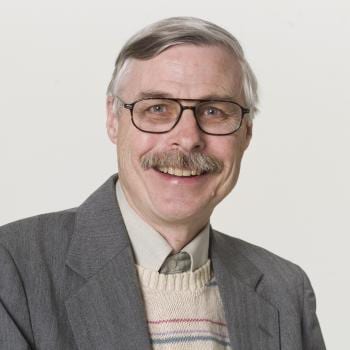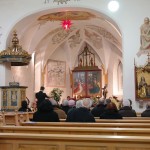Some time ago a business group sponsored a Saturday clean-up in my neighborhood. Teenagers were recruited from area churches and schools. They were treated to a party at the conclusion of the day’s effort. At a planning meeting about ten days before the event I was asked to approach two, small fundamentalist churches for more teen volunteers. One of the congregations already seemed interested in the neighborhood and its leaders were friendly when I arrived. “Will our teenagers work alongside Catholics,” one person asked me? “Of course,” I replied. “We can’t participate then,” she said. “We cannot expose our children to swearing.”
Dorothy Day (1897-1980) is now a Servant of God in Catholic saint-making terminology. She was once criticized because some of the volunteers at her New York City soup kitchen were swearing, and a few were also known to use drugs. “You cannot allow these bad people to tarnish the church’s good work,” her critic said. “Without the help of all these volunteers, the poor are not fed,” Day replied.
Some Christians judge our culture to be corrupt. Their response is to section themselves off into a relatively pure a sub-culture. Their strategy regularly appears in the Christian tradition. For example, the Catharism movement of the Middle Ages was influential in Northern Italy and parts of France. The world is no good, the Cathars preached. Live counter-culturally while anticipating the spiritual world above, they advised. Today the sectarian strategy is characteristic of the Amish and of many fundamentalist groups. This strategy often uses the remnant theory: God divides the righteous from sinners; God will ultimately lift up only the pure remnant and destroy all wickedness.
Roman Catholics cannot ascribe to the remnant theory. Catholics believe that people and their cultures are basically good, though flawed, yet receptive to redemption. No one on this earth, says Catholicism, is to be excluded from God’s mercy. The very word Catholic can be rendered thus: Here comes everybody. According to Catholicism baptism is a permanent tattoo on one’s soul and in one’s imagination that is not removed even when a person drifts far away from regular worship.
It is a sin for a Catholic to knowingly and willingly act in a way that excludes someone from God’s grace. It can be a serious sin. For example, a regular worshipper at my church once communicated to a young adult that she should leave Mass because, in the opinion of this worshipper, the young adult was not properly attired. The worshipper’s fashion opinion was wrong. The seriousness of the worshipper’s exclusionary comment, it needs to be said, depends on the degree of knowledge and will.
An East Coast Catholic bishop thinks that U.S. Catholicism might be better off with fewer members. That is, Catholicism could include its holy members and exclude those baptized Catholics who now dissent from or act against church teaching. “We should never be afraid of a smaller, lighter church if her members are also more faithful, more zealous, more missionary and more committed to holiness,” he said, without naming who would assign whom to each group. This is precarious talk from a Catholic, especially from a bishop.
A bishop—in word and in lifestyle—must constantly proclaim Catholic dogma and generally explain how revealed truth yields doctrines about marriage, about abortion, about labor relations, about the protection of children in church settings, about internet content and many other topics. Further, a bishop is well aware that many elements in our popular culture degrade God’s intention. Thus, a bishop must constantly speak about wholesomeness and dignity and sacredness of each life. A bishop is likewise responsible for the formation and support of lay leaders who within their normal settings can influence culture for the good, who can improve legislation, judicial conduct, business practice, social service delivery, TV production, neighborhood development and more. A bishop also knows that a few groups in our country call themselves Catholic, only to mock Catholic teaching, and thus that bishop has a duty to set the record straight.
The East Coast bishop in question received a solid Catholic education–from grammar school through graduate schools. He was also given excellent spiritual formation. I predict he will soon realize the fallacy of the culture despisers and will soon abandon the temptation to exclude sinners from the church. I predict that as this bishop spends more time praying with penitents in the Sacrament of Reconciliation, he will realize that God wants a big church; that God has no insurmountable barriers to grace. Of course, God knows full well that from Eve to Adam to the bishop to your columnist, there are many sinners. But only God—God alone—makes the decisive call on who is admitted to God’s eternal company and who is excluded.
Remember you mercy, Lord. Remember the love you have shown from of old. Do not remember the sins of my youth. In your love remember [to include] me. –Psalm 25
Droel edits INITIATIVES (PO Box 291102, Chicago, IL 60629), a print newsletter on faith and work.










